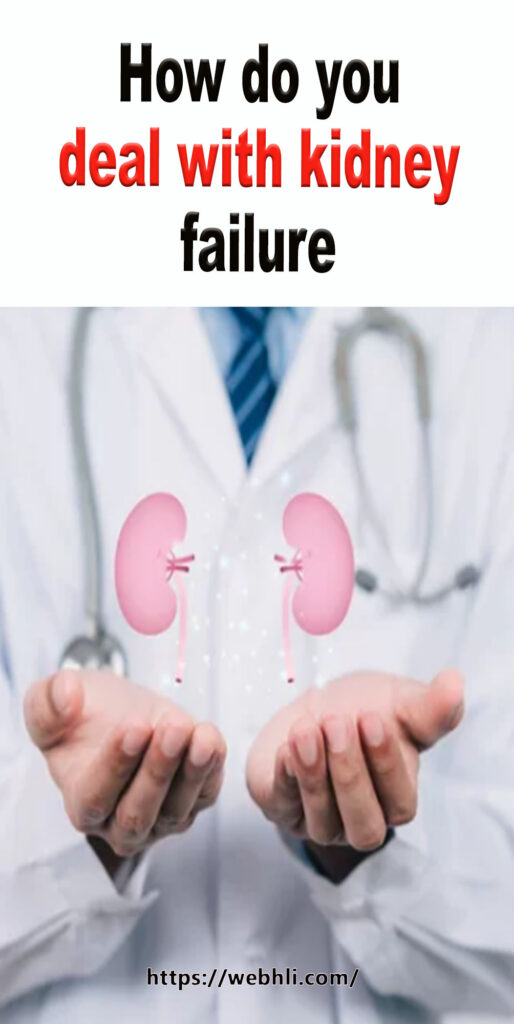
Kidney disease may affect many areas of life, but there are ways to overcome the changes it causes. Here are the following things that may concern a kidney patient:
How to live with kidney disease and cope with it
Living with renal disease can be a challenge whether the renal disease is mild with or without symptoms or the patient is undergoing dialysis because his kidneys are failing. These challenges vary depending on age, the severity of the kidney disease, and its cause. The following issues concern most patients with kidney disease:
Good Energy Food for Diabetics
10 Simple Food Concepts Every Person Living With Diabetes Should Know
Making Cheesecake For Diabetics
Enjoy the Taste and Benefits of Diabetic Foods
Will The Mulberry Leaf Help Your Diabetes?
5 DIABETIC FRIENDLY SALADS Some Tasty
DIABETIC LEMON COCONUT COOKIES Some Tasty
50 Healthy Diabetic Recipes That Are The Best
How does a kidney patient maintain his fitness?
There is no reason to be afraid of exercise. Regular physical activity is beneficial for anyone with kidney disease, even if it is severe. Not only does exercise increase energy, help with sleep, strengthen bones, prevent depression and keep you in good shape, but it may also reduce the risk of heart disease.
The ability to exercise should not be reduced if the patient has mild to moderate kidney disease. Rather, he should be able to exercise with the same frequency and intensity as someone of his age who does not suffer from kidney problems.
It is possible that the patient's ability to exercise will decrease if the kidney disease is advanced or he needs hemodialysis, and the patient may suffer from panting and fatigue more quickly.
But this shouldn't be a hindrance - exercise is still good. It can start slowly and increase the intensity gradually. You can also see your doctor before starting a new exercise program.
How to make the most of renal treatments that take a long time
If the kidney disease is mild or the patient has had a kidney transplant, treatment may not take much time, except for a periodic visit to the doctor or hospital.
In the event that the patient needs hemodialysis (dialysis), the treatment may take a lot of time anyway. And if we take into account the period of travel and convalescence, the hemodialysis in the hospital or the kidney unit will consume most of the day for three days each week.
"The greatest complaint of dialysis patients is the loss of time, freedom and restrictions imposed by regular hospitalization," says Tim Statham of the National Kidney Association.
He also says, "The key to overcoming this well is to be positive about the treatment and to find a useful or satisfying way to pass the time during dialysis. This may be reading, listening to language tapes, or doing special fitness exercises that are appropriate for the patient."
Home dialysis may be possible, and many kidney patients find it more comfortable than dialysis in a hospital. Currently, only 1 in 100 hemodialysis patients receive their treatment at home. But according to kidney experts, only 10-12% of patients qualify for home treatment. If a person thinks he qualifies, he should ask the health advisor or nurse for more information.
Check out these related articles, too:
What You Should Look Out For For Kidney Failure Symptoms?
Kidney Failure Treatment Without Dialysis
Kidney Diet Secrets That Can Reverse Chronic Kidney Failure
The Effects of High Potassium For Kidney
What Is A Healthy Kidney Diet Plan
Diet Tips For People With Diabetes and Kidney Disease
Are Renal Insufficiency And Kidney Failure The Same Thing
5 Natural Supplements For Chronic Kidney Disease
Bitter Melon Recipe For Diabetes
How does kidney disease affect vacation and health insurance?
In the event of mild kidney disease or a kidney transplant, going on vacation does not create additional health problems, whether the vacation is at home or abroad.
If the patient is on dialysis, he can still enjoy the holiday provided he books his treatment before going. And in the event that he wants to travel to another region inside his country, he must discuss his plans with the kidney unit supervising his treatment as early as possible, so that they can arrange hemodialysis sessions for him in a unit close to the place of his trip.
The lack of facilities in many parts of the country restricts the patient's freedom to travel. If you are traveling abroad, it is easy to arrange hemodialysis sessions with the country you are traveling to.
Work and kidney disease
It is unlikely that renal disease will affect working life unless it is an advanced renal disease or requires hemodialysis. In general, the dialysis unit does its best to arrange treatment appointments to suit the patient's work schedule.
Some patients can adapt their work to accommodate dialysis sessions, while others prefer to stop working completely for a short period. The patient can speak to his employer as soon as he learns of his need for dialysis to see if he can arrange a flexible or part-time job to allow him to continue with his work.



 Protected by Patchstack
Protected by Patchstack